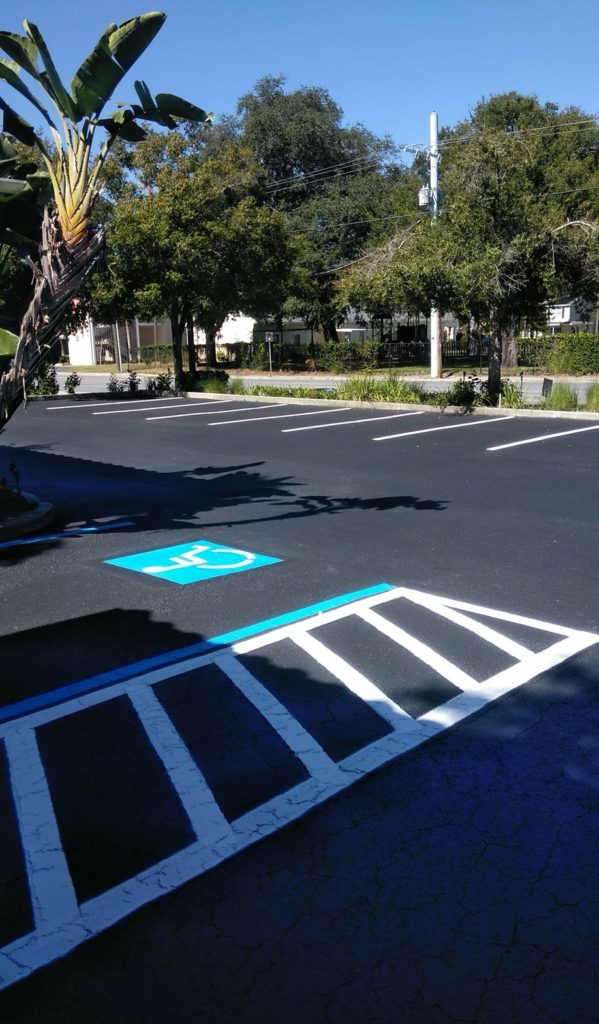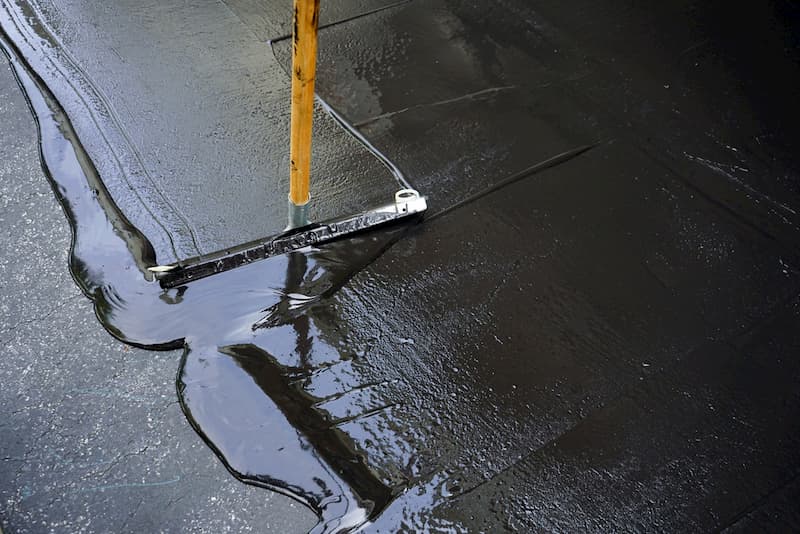Understanding Angled Parking: How Asphalt Sealing Enhances Industrial Great Deals
Understanding Angled Parking: How Asphalt Sealing Enhances Industrial Great Deals
Blog Article
Warm Mix Asphalt: A Lasting Service for Pavement
Warm Mix Asphalt (HMA) has emerged as a leading lasting option for sidewalk solutions, supplying a myriad of cutting-edge technologies and environmental benefits. Its ability to recycle products and decrease power intake provides an engaging instance for its fostering in road building and construction tasks. The lasting efficiency and toughness of HMA make it a preferred choice for infrastructure development. As the demand for environment-friendly construction practices grows, discovering the nuances of HMA's sustainability can supply useful insights into the future of pavement options.
Environmental Advantages of Warm Mix Asphalt

In Addition, Warm Mix Asphalt assists to mitigate urban warmth island effects. Its dark shade soaks up sunshine, lowering the amount of warmth mirrored back into the environment contrasted to lighter-colored sidewalks. This can decrease ambient temperature levels in metropolitan areas, decreasing the need for cooling and inevitably lowering energy usage.
Furthermore, Warm Mix Asphalt adds to improved stormwater monitoring. Its permeable nature permits water to charge and infiltrate the sidewalk groundwater products, reducing drainage and the danger of flooding. These environmental advantages make Hot Mix Asphalt a sustainable choice for paving highways and roadways.
Energy Performance in HMA Manufacturing
Is power performance an important factor in the manufacturing of Warm Mix Asphalt (HMA)? Absolutely. Energy plays a significant duty in the manufacturing of HMA, affecting both price and ecological sustainability. One essential facet of energy performance in HMA manufacturing is making use of warm mix asphalt (WMA) technologies (regrading). WMA permits the mixing and positioning of asphalt at reduced temperature levels compared to typical hot mix asphalt, causing minimized power intake during production. This procedure not just decreases gas use however likewise reduces greenhouse gas discharges, making it an extra ecologically friendly option.
In addition, improvements in plant technologies have actually resulted in more energy-efficient HMA manufacturing processes. Modern plants are developed with attributes like recycled asphalt sidewalk (RAP) handling capacities, efficient burner systems, and enhanced insulation, all adding to energy cost savings. By maximizing power use in HMA production, the industry can minimize its carbon footprint while maintaining high-quality sidewalk products. Power effectiveness is, for that reason, a crucial factor to consider in making certain the sustainability of Hot Mix Asphalt production.
Recyclability of Warm Mix Asphalt
The recyclability of Hot Mix Asphalt (HMA) is a pivotal aspect of its sustainability and long-lasting ecological influence. HMA is one of the most recycled products in the USA, with over 100 million lots of recovered asphalt pavement (RAP) being recycled each year in new pavement building and construction. Reusing HMA offers a number of environmental advantages, my site such as minimizing the demand for virgin materials, lowering energy intake throughout production, and decreasing the amount of waste sent out to garbage dumps.
The procedure of reusing HMA involves grating the existing pavement, squashing it into smaller sized pieces, and blending it with new aggregate and asphalt binder to develop a recycled mix. This recycled mix can frequently execute as well as or even much better than traditional HMA, while needing fewer raw materials and generating reduced greenhouse gas discharges. By integrating RAP into new pavement jobs, roadway firms can conserve all-natural sources, lower expenses, and lessen the environmental impact of roadway building and upkeep tasks. In general, the recyclability of HMA plays a considerable duty in promoting lasting methods within the sidewalk market.

Long-Term Efficiency of HMA
Asphalt pavements show longevity and resilience over an extensive duration, showing the long-lasting performance of Warm Mix Asphalt (HMA) Furthermore, innovations in HMA innovation, such as the usage of polymer-modified binders and warm mix asphalt, have even more improved the durability and durability of HMA sidewalks. By prioritizing top quality building and maintenance practices, HMA proceeds to verify itself as a lasting and economical solution for durable pavement infrastructure.

HMA: Toughness and Sustainability
Showing both resilience and sustainability, Hot Mix Asphalt (HMA) has come to be a keystone in the building and construction of durable sidewalk infrastructures - hot mix asphalt. HMA's longevity originates from its capability to hold up against heavy tons, harsh climate condition, and high traffic quantities, making it a trusted option for streets, highways, and airport terminal runways. The composition of HMA, which normally includes aggregates, binder, and filler, plays a crucial duty in boosting its durability and resistance to tear and wear
Furthermore, HMA's sustainability lies in its recyclability and energy-efficient manufacturing process. The capability to recycle reclaimed asphalt sidewalk (RAP) in new HMA mixtures decreases the need for virgin go materials and decreases the environmental impact of pavement building and construction and upkeep. In addition, the power effectiveness of generating HMA lies in its reduced mixing temperature levels contrasted to other sidewalk products, resulting in lowered energy consumption and greenhouse gas exhausts.
Final Thought
In conclusion, warm mix asphalt (HMA) uses a sustainable remedy for sidewalk with its ecologically friendly qualities. HMA's recyclability, energy performance in manufacturing, and lasting toughness make it an environment-friendly selection for roadway building and construction. By preserving natural deposits, decreasing waste, and decreasing greenhouse gas exhausts, HMA plays an important function in promoting sustainability in infrastructure advancement. Its capacity to alleviate city warm island effects additionally underscores its value in developing resilient and ecologically aware sidewalk systems.
HMA is one of the most recycled products in the United States, with over 100 million loads of reclaimed asphalt pavement (RAP) being reused every year in new sidewalk building and construction.The procedure of reusing HMA involves crushing the existing pavement, squashing it right into smaller items, and mixing it my company with brand-new accumulation and asphalt binder to produce a recycled mix.Asphalt sidewalks show resilience and durability over a prolonged duration, showing the long-lasting performance of Hot Mix Asphalt (HMA) In addition, improvements in HMA innovation, such as the use of polymer-modified binders and cozy mix asphalt, have actually additionally enhanced the toughness and long life of HMA pavements. The capability to reuse recovered asphalt pavement (RAP) in brand-new HMA mixes reduces the need for virgin products and reduces the ecological effect of sidewalk building and construction and maintenance.
Report this page